Podcast
¡El Arte no Calla!
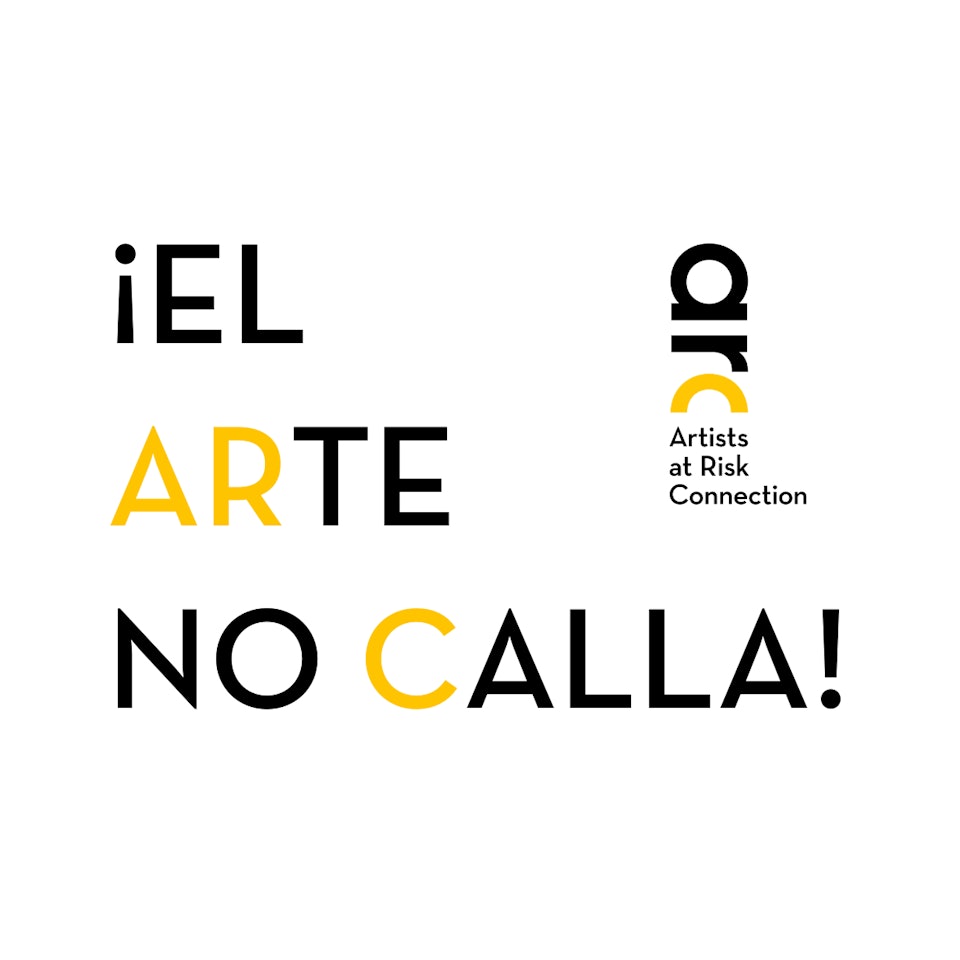
"¡El Arte no Calla!,” a new monthly Spanish-language podcast of the Artists at Risk Connection (ARC), explores art, freedom of expression, and human rights in Latin America. In each episode, ARC's Latin America Representative Alessandro Zagato will invite a different guest to help analyze the varying states of artistic freedom in Latin America and the violations that artists and activists are suffering in the region.

Episode 1: Protest and Social Creativity in Chile with Máximo Corvalán-Pincheira
In our first episode, we talk with artist Máximo Corvalán-Pincheira about the current situation in Chile, a country that has experienced a massive and unexpected social upheaval in the last five months. In particular, we discuss the role of social creativity and activist art in a context of intense state repression and censorship.
Read the English transcript here.

Episode 2: Critical Culture, Repression, and COVID-19 in Colombia with Cartel Urbano
In our second episode, Alessandro discusses art and activism in Colombia with Juan David Arenas, director of the magazine and cultural platform Cartel Urbano. Along with mass protests that took place last November, there has been a wave of repression and censorship in Colombia, now exacerbated by the presence of the coronavirus. As in many countries around the world, the government has exploited this situation to calm the waters and silence critical voices. In November, Cartel Urbano was raided by police forces, along with other arts organizations and collectives, for having made the work of critical dissident artists visible.
Read the English transcript here.

Episode 3: Politics of Fear and COVID-19 in Honduras with Dina Meza
In our third episode episode, we discuss the context of Honduras with Dina Meza, journalist and writer of international fame and co-founder of PEN Honduras. Since its creation in 2014, PEN Honduras has suffered repeated attacks and hostilities from authorities, with members imprisoned, tortured, and forced into exile.
Read the English transcript here.

Episode 4: LASTESIS Speaks! Feminist Art, Judicial Attacks, and Censorship in the Chilean Lockdown
In our fourth episode, ARC sat down with Dafne, Paula, Lea, and Sibila, the four members of Chilean art collective LASTESIS. The group reached worldwide fame for its performance “A rapist on your path” ("Un violador en tu camino"), a song that denounces patriarchy and structural gender violence. We spoke about lawsuits that have been filed against them by the police in a direct attack on “A rapist on your path” and another video-performance that the group recently recorded in collaboration with Russian collective Pussy Riot. In the interview, LASTESIS also provided insights on the situation of freedom of expression in Chile and the role that art can play in processes of liberation and democratization.
Read the full English transcript here.

Episode 5: Transgender Art and Censorship in Brazil with Renata Carvalho
In our fifth episode, Renata Carvalho, a prominent transgender artist and activist from Brazil, discusses the repeated attacks she suffered due to the theater piece, “O Evangelho Segundo Jesus, Rainha do Céu,” where she interprets the figure of Jesus as transgender. ARC spoke with her about the position of trans people in the Brazilian arts world and society, and how the possibility of inclusion and acceptance still seems to be far from reality. This situation has been aggravated by the current strength of right-wing and transphobic religious groups, paired with the Brazilian government’s irrational and disparate management of the pandemic.
Read the English transcript here.
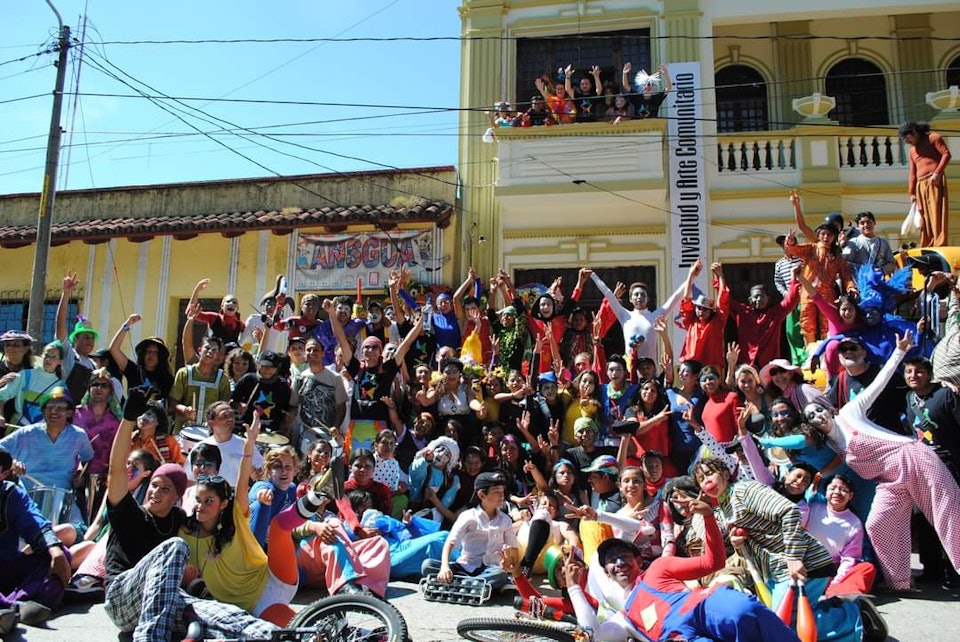
Episode 6: Repression and Emancipatory Art in Guatemala
In our sixth episode, ARC sat down with the representatives of two artistic, cultural, and human rights organizations based in Guatemala. In the first segment, Catalina Garcia* reflects on the community-oriented activities of Caja Lúdica, an organization that develops processes of collective emancipation and healing in urban and rural communities through the arts. In the second segment, Lucia Ixchiú of Festivales Solidarios discusses the attacks suffered by her independent collective as a result of their commitment to Indigenous peoples’ resistance and their outspoken criticism of extractivism and territorial dispossession.
Read the English transcript here.

Episode 7: The Fight for Free Expression in Cuba
In this episode of ¡El Arte no Calla!, ARC speaks with Cuban multidisciplinary artist Julio Llópiz Casal about the growing demand for freedom of expression in Cuba. On November 27, 2020, in the wake of the unjust arrest of rapper Denis Solis* Gonzalez, countless independent artists, writers, thinkers, and civil society members formed the “27N movement,” which seeks to open channels of dialogue with the Ministry of Culture and confronts a situation of growing repression against independent artists on the island. Llópiz Casal has been a key member of the movement and discusses his role in demonstrations, the state of artistic freedom in Cuba, and what the movement hopes to achieve.
Read the English transcript here.
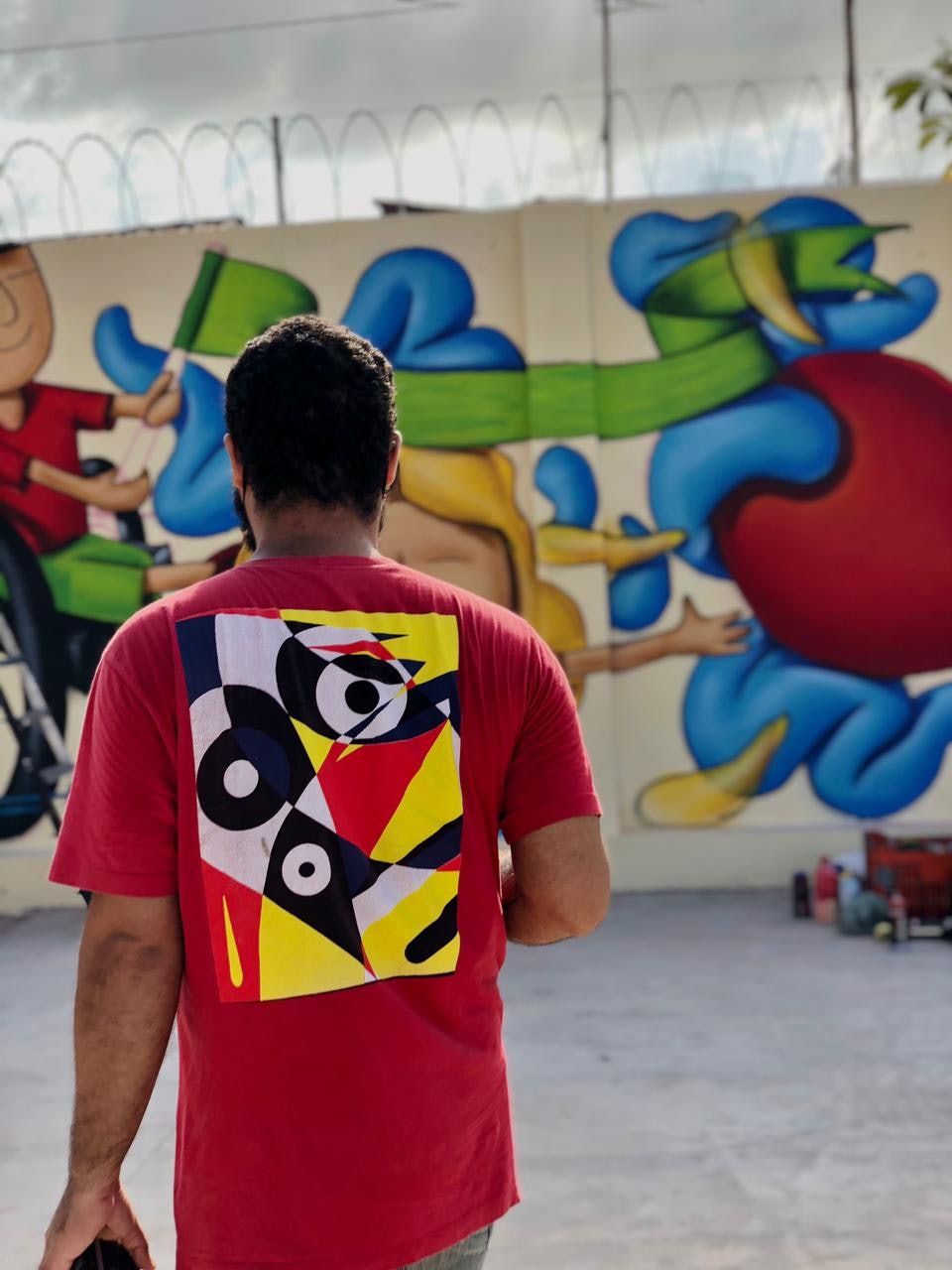
Episode 8: COVID-19 on Canvas in Brazil with Gil Leros
In this episode of ¡El Arte no Calla!, Brazilian muralist Gil Leros reflects on the mismanagement of the COVID-19 pandemic in Brazil, its consequences for artists, and on muralism as a form of democratic art accessible to all. As exemplified by a mural that became famous worldwide for representing healthcare workers fighting COVID-19, Leros reveals how the form can give visibility to ideas and artists who might not otherwise find representation in the mainstream media.
Read the English transcript here.

Episode 9: Relocation of Artists at Risk in Latin America
Laurence Cuny guest hosts this episode. Cuny, a human rights lawyer and researcher, is the author of a recently published MRI study titled “Relocation of Artists at Risk in Latin America.” The study examines the strategies necessary to foster collaboration between artistic institutions and human rights organizations in the region, in order to provide greater protection to artists at risk and promote freedom of artistic expression.
In the episode, Cuny sits down with Magdalena Morena Mujica, director of the International Federation of Arts Councils and Culture Agencies (IFACCA); Philippe Ollé-Laprune, representative of ICORN’s Shelter Cities project in Latin America; and Fransk Martinez, Nicaraguan artist and beneficiary of Shelter City Costa Rica.
Read the English transcript here.
*Apologies, as our CMS does not currently support accents on the letter "i" in our internal text. We are working on this issue.
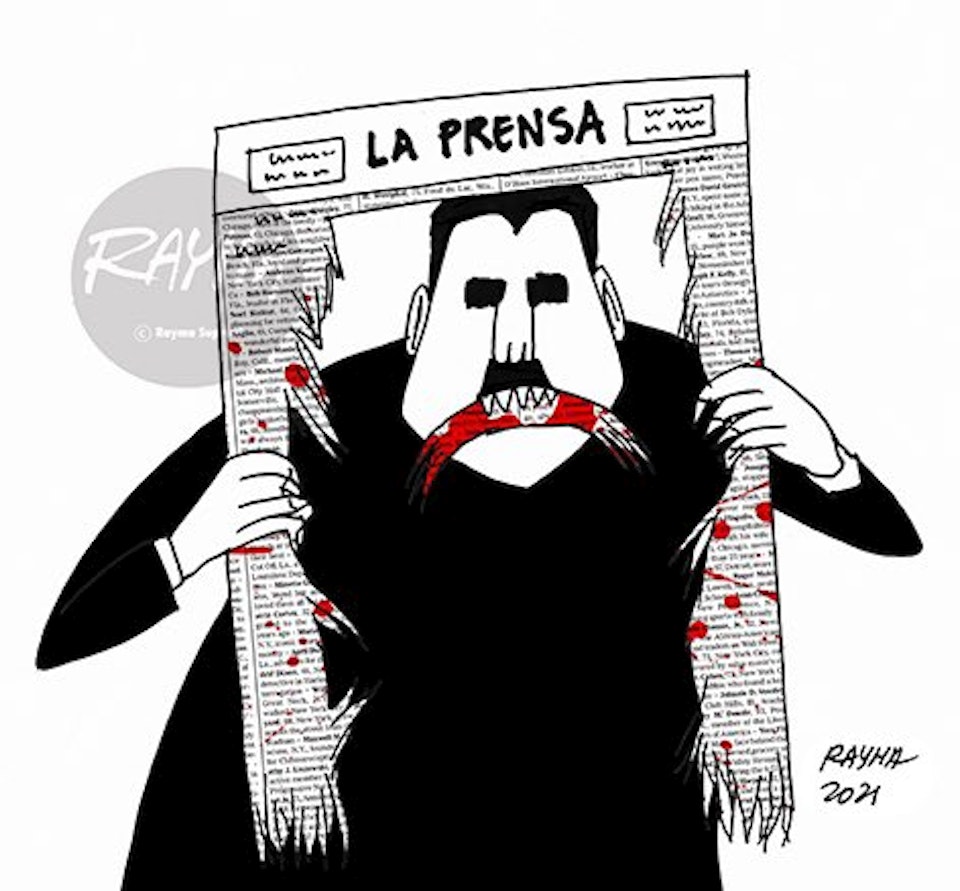
Episode 10: Political Cartooning and the Venezuelan Diaspora with Rayma Suprani
In this episode of ¡El Arte no Calla!, ARC sits down with Rayma Suprani, a prominent Venezuelan cartoonist who worked for twenty years at the national tabloid El Universal but had to leave her country after being persecuted and threatened for her satirical work. Rayma reflects on the important role of political cartooning, a form of art that challenges power and dominant perceptions and allows people to see things from a different, often provocative point of view. She also considers the worrying human rights situation currently shaping Latin America and Venezuela.
Read the English transcript here.
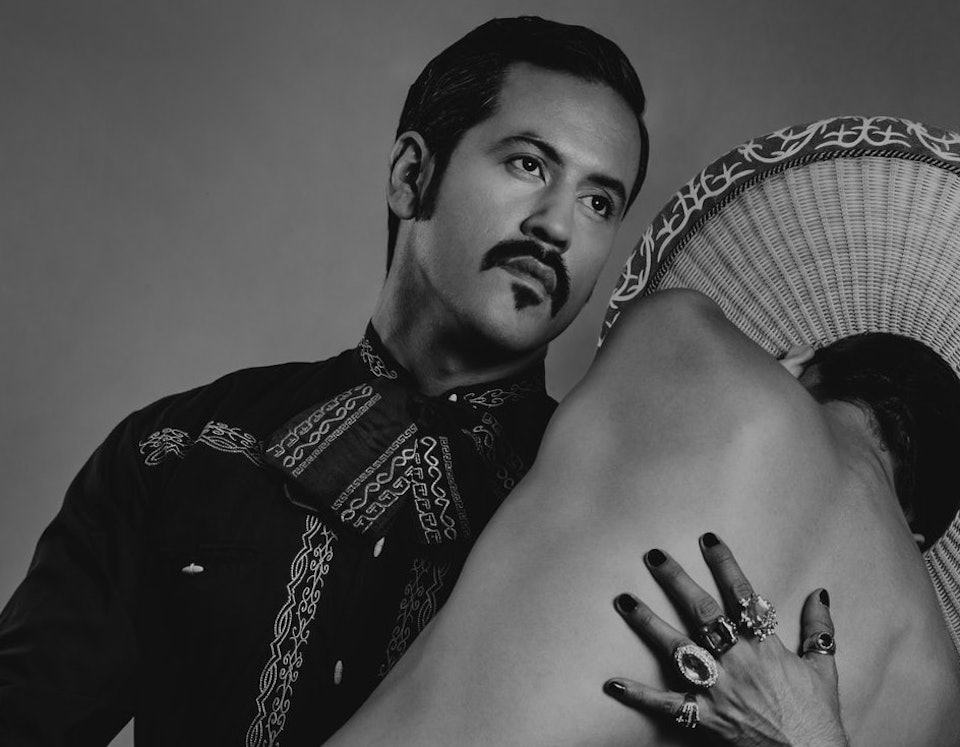
Episode 11: Confronting Machismo Through LGBTQ Art in Mexico with Fabián Cháirez
In celebration of Pride Month, this episode of "¡El Arte no Calla!" features Fabián Cháirez, a prominent plastic artist from Mexico whose work proposes a reconceptualization of the hegemonic national masculinities. In 2019, his work “La Revolución,” which portrayed the national revolutionary hero Emiliano Zapata on a horse, was exhibited at the Palacio de Bellas Artes in Mexico City, causing a major controversy that led to attacks and death threats against Cháirez. This event paved the way for a national debate on art, machismo, and references for masculinity.
Read the English transcript.

Episode 12: Drag Queen Art and the Demand for Change in Colombia, with Myth Drag Queen
In this episode of ¡El Arte no Calla! we interview Myth Drag Queen, a queer performance artist from Colombia whose participation in the current national mobilizations and protests made her internationally famous. Myth reflects on her trajectory as an activist and artist, highlighting the importance of drag queen art as a platform to make visible and address some of the problems that are deeply shaping her country, and that constitute the reasons for the current conflict.
Read the English transcript here.

Episode 13: An Artistic, Celebrative, and Sensorial Approach to Activism in Venezuela - with Labo Ciudadano
In this episode of ¡El Arte no Calla!, we sat down with Seymar and Angel from Labo Ciudadano, an innovative Venezuelan collective experimenting with new forms of activism that use a creative, artistic, celebrative, and sensorial approach to organization and protest. They reflect on the situation of strong repression affecting their country and the tremendous diaspora of millions of Venezuelans who were forced to move abroad. Through the articulation of art, culture and politics, Labo Ciudadano is attempting to reconstruct a fragmented social fabric, starting from its internal differences and complexities, which have been suppressed and fractured by state power throughout the years.
Read the English Transcript here.

Episode 14: El Salvador: Authoritarianism and Emerging Threats to Artistic Expression
In this episode of ¡El Arte no Calla!, we sat down with representatives of the contemporary artistic scene in El Salvador to discuss the current political scenario, shaped by authoritarian and populistic tendencies, and its consequences for freedom of artistic expression in the country. Renacho Melgar is an internationally recognized painter whose work was recently censored for representing a critical point of view on the country which the current government rejects. Las Amorales is a feminist collective that generates political action starting from resistant forms of art. Las Amorales highlights and fights against gender violence and discrimination in a country where machismo is currently on the rise and reinforced by government policies.
Read the English transcript here.

Episode 15: Arte en la Tormenta
Episode 15 of "¡El Arte no Calla!” explores some of the critical issues raised in the report Artistic Freedom and Human Rights in Latin America and the Caribbean, which documents the troubling rise in restrictions on artistic freedom in Latin America and the Caribbean. The report summarizes the key findings and recommendations from a closed workshop in March 2022, which brought together 31 artists, activists, and cultural defenders from across the region.
This podcast episode consists of three interviews with participants of the ARC regional workshop: Danny Rayman, a lawyer, and director of the Chilean NGO Acción Constitucional, Egly Larreinaga, a Salvadoran performing artist and cultural activist, and multidisciplinary artist and Venezuelan activist Malú Valerio.
Read the English transcript here.
Special Collaboration: ¡El Arte no Calla! x Caminero

Episode 1: Intervening through poetry. A conversation with Alessandro Zagato, Hilda Landrove, and Amaury Pacheco
The first episode of a six-part series, resulting from the collaboration between ARC’s ¡El Arte no Calla! and Caminero, is a conversation with Alessandro Zagato, ARC Regional Representative for Latin America and the Caribbean; Hilda Landrove, Cuban researcher, essayist and cultural promoter based in Mexico; and Amaury Pacheco, poet, performer, founder of Omni-Zona Franca, and a prominent figure in Cuban alternative and dissenting art.
The discussion showcases art as a potent tool capable of influencing imaginations and transcending specific political contexts, unveiling art as a means to break boundaries and open new avenues for thought and action. Hilda and Amaury reflect on how in Cuba, poetic action can subvert reality from within, creating powerful images that widen the cracks in the walls of oppression, reinvent language, and reveal the invisible. The conversation also explores the transmutation of pain, highlighting the significance of acknowledging our own shadows and ghosts, explaining how time and connections among generations of poets can lead to a renaissance, with new voices emerging in the light of those that preceded them. The following is an excerpt of the episode translated from Spanish.
Read the English transcript here.

Episode 2: Feminist activism and anti-authoritarian struggle
The second installment of this special podcast collaboration, the episode delves into the intersections of art, activism, and feminism with our guest Yanelys Núñez, curator and feminist activist exiled in Madrid. She is one of the founders of the San Isidro Movement and her testimony is presented in the Método Cuba: Independent Artists’ Testimonies of Forced Exile report, published by ARC, PEN International and Cubalex. In this episode, we explore the profound impact of the July 11, 2021 protests in Cuba, the enduring demands for freedom, and the complexities of resistance in a highly repressive environment.
Read the English transcript here.

¡El Arte no Calla! x Caminero - Episode 3: Sites of resistance and collective action
In this episode, a collaboration between Artists at Risk Connection (ARC) and Rialta, we explore two diverse contexts and approaches where art becomes a driving force for political and social projects. On one hand, Julx Morales, a muralist and feminist activist, speaks to us about the Galería Feminista Siempre Vivas in Bogotá, Colombia. Additionally, Solveig Font, curator and activist, shares her experience with Avecez Art Space, an independent gallery situated in a Havana apartment. Stemming from the differences between these two spaces emerges a crossroads turned into a gallery and a domestic space, showing confluence in their methods. We speak about how attacks on their projects have brought them to redefine strategies without losing sight of their objectives and how collective action and artistic creation keep the political struggle alive.
Read the English transcript here.

¡El Arte no Calla! x Caminero - Episode 4: Escaping the clutches of power
In this fourth episode, part of a collaboration between Rialta’s “Caminero” and ARC’s “El Arte No Calla” podcasts, we explore the depths of memory and power through the voices of two contemporary artists, Hamlet Lavastida from Cuba and Renacho Melgar from El Salvador. Both share a common interest: the revival and reinterpretation of historical processes – long hidden by political parties – in order to construct distorted imaginaries that legitimize their totalizing projects.
Read the English summary here.